



Get new exclusive access to healthcare business reports & breaking news




US is spending around 20 percent of its GDP on healthcare. Which is massive. That’s why it comes as no big surprise that blockchain technology is positioned to be the next big thing in healthcare. We look at how blockchain can help optimize the spend, save lives and improve health outcomes.
The blockchain is generally defined as a decentralized system in which transactional or historical records are recorded, stored, and maintained across a peer-to-peer network of personal computers called nodes. In other words, it’s an immutable, public digital ledger which is a much akin to a database. The blockchain is indeed a powerful and disruptive technology that can cause a seismic shift in just about any industry.
You’d be forgiven for think blockchain is all about cryptocurrency.
Yes, when people discuss blockchain, they often tied it to cryptos like Bitcoin. But there’s much more to blockchain in terms of application and robustness than cryptocurrency. Given that blockchain is a public ledger that’s secure and immutable, it’s exactly what healthcare needs.
Picture a spreadsheet file replicated over and over again on a network of thousands of computers, and that’s basically what blockchain does. It’s a decentralized, distributed digital ledger that contains a plethora of continuously updated, time-stamped, and highly encrypted virtual records. Without blockchain technology, there would be no cryptocurrencies such as Bitcoin or Ethereum. Each unit of the said digital ledger is called a block.
Of more importance is that the blocks of the virtual ledger are linked together via cryptography in order in which they were created. In fact, blockchain nodes are bind together by crypto technology in a manner that’s literally immutable. That makes blockchain one of the most secure technologies known to man.
How exactly does it work? A person often initiates a change to the blockchain, creating a new “block.” What’s quite fascinating is that this “block” is broadcast throughout the decentralized network. Once “seen” by each computer on the network, the record of the block or change is permanently added to the chain. Eventually, all these computers approve of the change, and it is irreversible.
No matter how you look at it, blockchain and healthcare is a match made in heaven. For starters, healthcare players should seriously think about blockchain in the age of health data insecurity. Given that healthcare industry suffers from security breaches almost on daily basis, it’s a no-brainer to incorporate a technology that promises to seal all the loopholes. After all, there’s a lot more to blockchain than simply transactional activities. It’s about securely sharing data previously deemed impossible to extract.
The blockchain is a technology that’s already getting massive attention in healthcare. In fact, as we mentioned before, 40 percent of health execs see blockchain as top 5 priorities. Furthermore, the global healthcare market spend on blockchain is expected to hit $5.61 billion by 2025, according to a report by BIS Research. The adoption of the blockchain technology could save the healthcare industry up to $100-$150 billion per year by 2025 in data breach-related costs, IT costs, operations costs, support function costs and personnel costs, and through a reduction in frauds and counterfeit products.
When all’s said and done, blockchain in healthcare is ALL about removing the middleman. This article will talk about various middlemen that can be removed and mistakes that can be avoided when the healthcare industry adopts blockchain at scale.
Here’s what we will cover in this comprehensive article:


Blockchain technology can truly revolutionize the pharmaceutical sector as a whole, as well as drug discovery, development, and distribution process. That in and of itself isn’t surprising at all. Previously we estimated that 9 out of 10 new drugs fail to make it to clinical trial, and a lot more don’t even reach the FDA-approval stage. The big problem for pharma companies is getting crucial patient data in an era when they are not really trusted by people.
Of course, there are plenty of data challenges Big Pharma is grappling with. These include:


Perhaps the most concerning data problem faced by pharmaceutical companies, especially when it comes to drug development, is a grave disparity of data. Remember pharma data is often recorded and tucked away in silos, and is accessed through several different platforms.
What’s even worse is that each department often uses a separate data structure and model. As such, getting access to all important data whenever needed is crucial for pharma companies for big data analytics.
This is an area where artificial intelligence, big data analytics, and blockchain can work in tandem to deliver efficiency and accurate results for pharma firms. The good news is that around 61 percent of pharma companies are already embracing AI, with blockchain implementation in the pipeline.
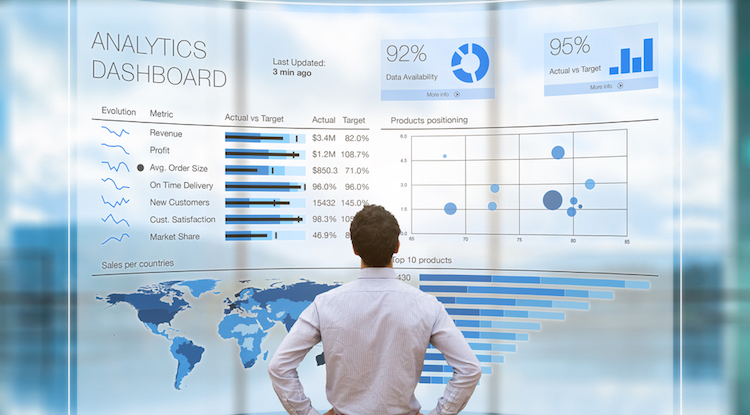

Considering that pharma companies have to deal with so many data sources, it’s clear that there’s a problem when it comes to data gathering, handling, and eventually analytics.
For starters, some crucial data might fall through the cracks during the capturing phase, watering down insights from the analytics.
As if that isn’t bad enough, the whole process of harmonizing data from different sources can end up being quite time-consuming. What’s more, lengthy analytics process may actually fail to discover insights that might be helpful to the pharma.
With that being said, it’s obvious that the whole data handling process for pharma companies need to shift. After all, managing large data sets is already quite a challenge for both small and big pharmaceutical companies.
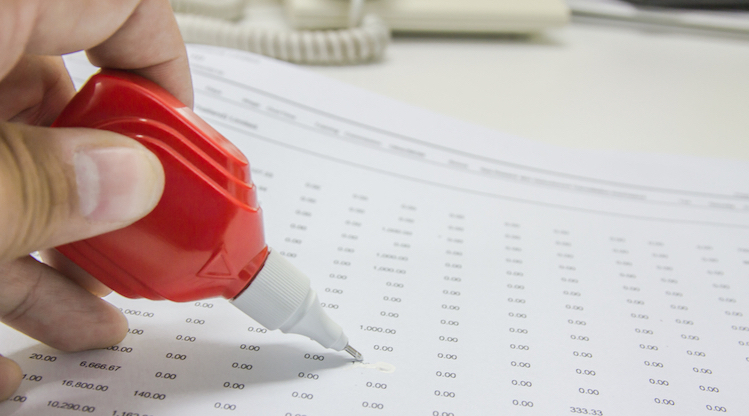

In the pharmaceutical space, there’s always ambiguity around the accuracy of available data. Is the data analytics report accurate, and if yes, are the insights still relevant?
Given that pharma companies store data in silos which can be accessed through disparate channels, it’s often hard for them to be certain if all the data available is still fresh and insightful.
Enter blockchain technology. When leveraged properly, blockchain can help pharma record, store, and sort their data in a way that it yields insights that are always relevant and unambiguous. More importantly, any solution that can help pharma accurately handle data will eventually save lots of money, spruce up the bottom line, and improve health results for everyone.
More specifically, here are ways how blockchain, alongside other robust technologies like AI and Big Data, can transform pharma:


Managing an effective health supply chain comes with an added risk and complexity for big pharma because a compromised supply chain can have grave ramifications especially to health outcomes and patient safety.
“The most prominent beneficiaries of the technology will be the pharmaceutical companies, which lose approximately $200 billion to counterfeit drugs each year. By enabling complete visibility and transparency throughout the drug supply chain, blockchain will allow tracking of drugs to their point of origin and thus, help to eliminate falsified medication, reducing revenue loss by up to $43 billion annually for pharma companies,” says BIR Research in a their new market intelligence report titled “Global Blockchain in Healthcare Market- Analysis and Forecast, 2017-2025.”
BIR Research is right down to the T.
If implemented well, blockchain technology can be an excellent solution for enhancing data provenance, integrity, functionality, and, of course, security of a pharma supply chain.
It is a technology that is well suited for protecting every aspect of the health distribution chain. And there are several use cases that have already emerged on using blockchain to improve health supply chain, as well as optimizing the efficiency of the Internet of Healthy Things (IoHT), safeguarding internet-connected medical equipment, combating counterfeit medicines, and much more.
One of the biggest challenges that affect the pharmaceutical supply chain is rampant counterfeit or falsified medicines. These fake or compromised drugs are the result of poor manufacturing practices & techniques, ineffective storage, theft of drugs, of medicines, and the market penetration of low quality or counterfeit products into the so-called gray markets.
In fact, the WHO (World Health Organization) says that this “black market” or counterfeit medicines market is worth a whopping $75 billion, but the figure could be even bigger in reality. This is especially true in countries like Bangladesh where the vast majority of medicine expenditures go to import suppliers.
Of course, the pharma supply chain is susceptible to counterfeit drugs not just in low-income and developing nations, but also right here in the US.
In 2012, for instance; the FDA warned around 1000 healthcare organizations and health practitioners in several states that they may have fallen victim to fake medicine rings. More specifically, they were notified that they might have been sold counterfeit Avastin, one of the most sought-after anti-cancer drugs on the market. That’s why US Food and Drug Administration started championing for the legislation of Drug Supply Chain Security Act (DSCSA), which has already been signed into law.
If you dig a little deeper into the nitty-gritty of blockchain, you’ll realize that the technology satisfied nearly every criteria needed for DSCSA compliance.
These criteria include drug/ product identification, product tracing/tracking, product verification, counterfeit medicine detection & response, notification relevant agencies like FDA, and sharing required information eg licensure information.
Against this background, pharma companies might want to join hands with mature blockchain tech firms to design, implement, and manage their drug supply chains.
The collaboration between pharma global giant GlaxoSmithKline and blockchain company Viant is a great example. It’s a partnership that will help facilitate the adoption and use of the track-and-track technology powered by blockchain to tighten up the pharma supply chain. With the ranks of Microsoft, Imaginea, and GlaxoSmithKline on board, it’s worth keeping an eye on.
Of course, further research, alignment with compliance and health policies, and evaluation have to be carried out to facilitate the adoption of blockchain in the pharma supply chain. After all, most blockchain initiatives in pharma and healthcare are still stuck in pilot or proof-of-concept phases.


Managing and accessing drug trial data is a hot-button issue in the health industry, and more so for pharma companies.
It always feels like a tradeoff between privacy and data sharing, which presents a huge problem for pharma IT.
The truth is, most pharma companies keep their drug trial data in centralized databases which have to be compliant with HITRUST, ISO, HIPAA, confidentiality, and other ethical & regulatory requirements.
The trouble is that these centralized databases make it hard for researchers and drug trial leaders to share the data with the right people. That’s where blockchain comes into play. Blockchain in healthcare helps pharma create auditable, unalterable, and distributed databases for storing and accessing drug trial data.
Take MIT Enigma system, for instance. It’s a fully-fledged blockchain initiative that uses 2 core cryptographic blocks that work in tandem on top of a peer to peer network of nodes. In simple terms, this system is a secret-sharing platform that allows researchers to maintain a high level of privacy and security when dealing with clinical studies data.


Keeping accurate medical trials is a tough business.
Staying on top of accounting and costs during clinical studies/trials, especially those that last for long periods, is a well-known challenge to pharmaceutical companies.
Bookkeeping tools currently available are far too complicated and don’t capture the holistic cost picture of the clinical trials. To add insult to injury, estimated clinical trials financial accruals can quickly become a benign process, especially when you have to harmonize petty books with annual financial reports.
The good news is that blockchain technology can be implemented to keep track of clinical trials financials as well as make bookkeeping efficient, accurate, and easy.
Due to the inherent complexity of clinical trials financials, companies like Boehringer Ingelheim have announced working with blockchain firms to streamline their bookkeeping and financial reporting activities.
The Canadian-based unit of Boehringer Ingelheim just recently reached out to IBM to design, develop, and deploy a blockchain-powered bookkeeping system for the clinical trial pilot project.
The first of a kind in the pharma industry, this collaboration will yield a new blockchain solution to improve the quality of clinical trial processes and record keeping.
“The clinical trial ecosystem is highly complex as it involves different stakeholders, resulting in limited trust, transparency and process inefficiencies without true patient empowerment,” said Uli Brödl, VP of medical and regulatory affairs for Boehringer’s Canadian division, explaining the need for the blockchain-powered solution.


Pharma and healthcare facilities spend a huge amount of money and lots of time finding, qualifying, and onboarding the right candidates for their clinical trials. And given that only 10 percent of new drugs make it to the market, it’s critical to identify and recruit the absolute perfect candidates. Currently, there are several different software and technologies used by pharma to do this. Unfortunately, these techs don’t always ID the right patients, hence the need for blockchain technology.
While blockchain technology itself might not do much to fix patient identification, it can help bring some of the data integrity, accessibility, security, privacy, and interoperability needed by pharma. Two aspects – from a consumer and pharma point of view, various blockchain marketplaces have been already launched.
In the case of 4Medica, blockchain technology is used to make patient-clinical trial matching more efficient, more cost-effective, and faster. Technically, blockchain itself is used to track the unique patient identifier. It’s a central place to keep a tab on all these identifiers make it easy for pharma professionals to match patients with their clinical trials.
But there’s a second use case. Today, researchers try to find the right candidates for drug trials via patient IDs mapped onto EHR data. It’s a total mess. You can miss potential candidates. There’s tons of manual work.


Let’s face it; managing patient data, staying on top of compliance, and government regulations are no easy walk in the park for health organizations.
The whole process can be hard, tedious, and inefficient, not to mention the hefty costs associated with this. In fact, according to a survey conducted by KPMG, 38 percent of top healthcare CIOs say better management of electronic health records (EHR) is top of their agenda and budgeting needs.
With that said, blockchain can help improve interoperability, security, shareability, compliance, management, and accessibility of patient data in many ways, including:


Forward-thinking health facilities, practices, and providers can set the stage for consent management by leveraging the power of blockchain.
Currently, the whole process of consent acquisition and management is a total mess. You need all these permissions, opt-ins and informed consent from patients. You need to stay compliant with how you handle protected health information. On top of that, healthcare organizations must protect data and patient privacy.
This is an area where blockchain firms like HealthVerity bring their A-game.
HealthVerity is transforming how modern healthcare institutions make critical and defining decisions, especially when it comes to handling patient data.
HealthVerity has developed a blockchain-based platform that serves as the stage for a rapid generation, sharing, and management of patient and healthcare data.
More crucially, the state of the art technology platform makes sure regulatory compliance is observed by establishing a shared, unalterable record of all patient consent transactions that happen within a healthcare facility. This way, only parties with express permission can access patient data on the fly without compromising its security and consumer privacy.
Of note also is that HealthVerity platform eliminates other challenges like data inconsistency, ambiguity, and fragmentation.
The result is a robust consent management system that makes it effortless for relevant and permitted parties to collect patient data for HIPAA compliance, marketing, and a plethora of other healthcare purposes.


Let’s face; hospital admission intake process can feel like climbing Mt. Everest.
Patients often waste time queuing and filling out appropriate forms.
That’s why blockchain companies like Kalibrate Blockchain are looking to change things for the better. The firm has developed a blockchain-powered engine called Universal Patient Index for its FormDrop mobile app.
What this mobile app does is enable hospitals to use a blockchain solution that allows new patients to fill in patient forms ahead of going to the hospital to avoid lines and wasted time. It’s truly a game-changer for healthcare institutions looking to spruce up workflow and facility efficiency.


There’s a lot of contracts in healthcare – between patients and hospitals, between various healthcare providers, between health organizations and vendors etc. Now comes the idea of smart contracts executed on top of the blockchain.
Two Use Cases of Smart Contracts in Healthcare:
Smart contracts can help process, receive claims, and send payments.
That’s where smart blockchain companies come into play, helping draw smart contracts between health organizations and insurance providers.
The blockchain-driven smart contract system created by TIBCO Software in collaboration with Change Healthcare is a good example.
This first of its kind system enables healthcare payers to automate processes across all claims and transactional lifecycle.
Aptly called Project Dovetail, the smart contract platform uses Intelligent Healthcare Network blockchain technology and TIBCO’s smart contract project to deliver hassle-free, secure, and verifiable healthcare transactions
Another great instance of B2B Smart contracts in healthcare is the collaboration of Minute Clinic, PBM, and Caremark. The CVS Minute Clinics smart contract system was designed to make drug dispensing, compensation, and payment processing a breeze.
“The new CVS-Aetna company would be able to create healthcare plans with incentives for members to utilize the CVS Minute Clinics, with disincentives for more expensive visits to physicians’ offices. The merged company would be able to leverage the vast amounts of consumer data it owns to gain better insight and improve its managed care outcomes. This would also significantly help with the company’s revenue cycle management,” says Prithvi Srinivasan, the Global Head of Digital of Prolifics on CVS use of smart contracts.
For many years, middlemen have existed in the healthcare ecosystem primarily because there’s a lack of trust between patients and health institutions/providers. These two parties can’t seem to trust each other when it comes to conducting transactions. With blockchain-based smart contracts like the one developed by Robomed Networks, that becomes a thing of the past.
Currently, hospitals must use a number of complex commercial and custom systems to automate several aspects of healthcare transaction processing.
Some of these systems are currently riddled with gaps and sometimes need manual/human intervention. This not only wastes time, but it can also be costly.
Smart patient-hospital contracts, on the other hand, present a more efficient, cost-effective, and simpler solution in which self-executing contract rules that insurer and other parties must build on top of the blockchain. As such, when a patient visits the doctor, for instance; the blockchain ledger is updated (which is immutable).


The last thing a hospital needs is to hire quacks or unlicensed physicians, another key aspect of healthcare blockchain can help solve.
Hashed Health is a company using blockchain to ensure that only genuine physicians make to the healthcare ecosystem. They built a credential verification system for physicians to prove they’re indeed licensed to operate.
Hashed Health partnered with Accenture, WellCare, Spectrum Health, National Government Services, Hardenbergh Group, and HealthLink Dimensions to create a blockchain-powered credentialing system.
The solution is actually an exchange platform that provides hospitals and other healthcare institutions with access to verified credentials information, as well as a means for them to contribute verified information that’s shareable with all other healthcare organizations.
The participating healthcare organizations are allowed to define particular rules, artifacts, data, and validation checks for credentialing any type of employee, from AHPs and nurses to physicians and other specialists.
Ultimately, the blockchain based platform helps doctors and healthcare organizations alike save time and be compliant with various requests.
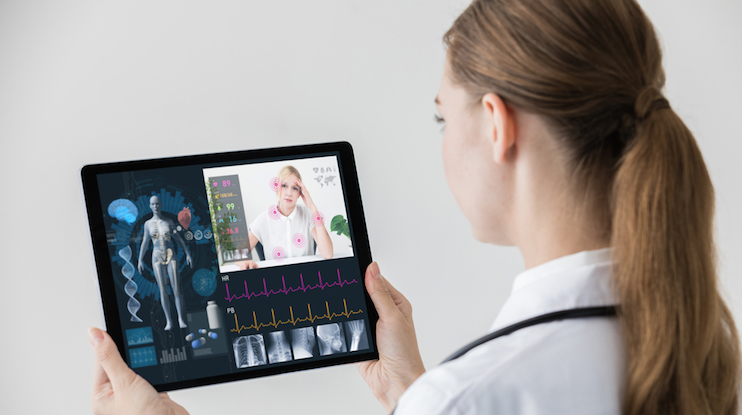

Today, there are myriads of smart devices that collect copious amount vital user information.
Devices like Omron HeartGuide and Apple devices collect a diversity of crucial data, from your sleep patterns and blood pressure to physical activity, heart rate, and everything in between.
That’s a massive amount of confidential data that can be detrimental if it falls in the wrong hands. For instance, if your device shows that you are not exercising and your heart is failing, you can end up seeing your health coverage go up if your insurer finds out the information.
As such, the security, transmission, and privacy of this crucial information has to be protected at all costs.
One of the effective ways to so is to use a blockchain approach that enables for secure recording, transmission, and sharing of this information between your device and your health service provider.
This approach involves creating proof-of-data integrity. And leveraging this “proof,” healthcare providers (and the patient) can verify the data timestamp without actually relying on 3rd parties that can comprise the security of the data and privacy of the consumer. It’s a win-win.


No one has a more vested interest in people staying healthy than insurance companies. If patients are healthy, they pay their premiums and insurance companies’ profits increase. With that in mind, payers are leveraging the power of blockchain to help them in various ways:
Payers have always had a tough time convincing healthcare facilities and providers to adopt digital payment systems that offer a high level of interoperability, faster payment processing, and safer electronic data interchange (EDI) processing.
That’s exactly where blockchain comes into the picture. And there are already a few players have implemented blockchain systems that boost payment processing and interoperability, with the likes of IBM at the forefront.
Just recently, IBM announced that it has partnered on a blockchain network for healthcare industry with several insurers, including PNC Bank, Health Care Service Corporation, Anthem, and Aetna.
The collaborated outfit will use blockchain technology to help design, create, and implement a network that’ll enhance payment processing, interoperability, and transparency in the healthcare sector.
The primary focus of the six companies is to come up with an all-inclusive blockchain-based network that will be beneficial to members of the healthcare ecosystem in a highly shared and protected environment.
Various providers already try to incentivize patients to be healthy:
Cigna Healthy Rewards program is a micropayments scheme that helps on-network members to get discounts when they sign up for weight management & nutrition, fitness club & gyms, as well as get vision & hearing care, seek alternative medicine like acupuncture, register for mind & body wellness programs, or purchase vitamins, health, and wellness products.
Humana also has a similar micropayments reward program that offers deep discounts to its members that choose to embrace a healthy lifestyle. Recently, Blue Cross Blue Shield announced that they’ll offer steep discounts for Fitbit products to its 60 million members.
The partnership with Fitbit is aimed to “help consumers create and maintain healthy habits,” according to HealthcareWeeky.
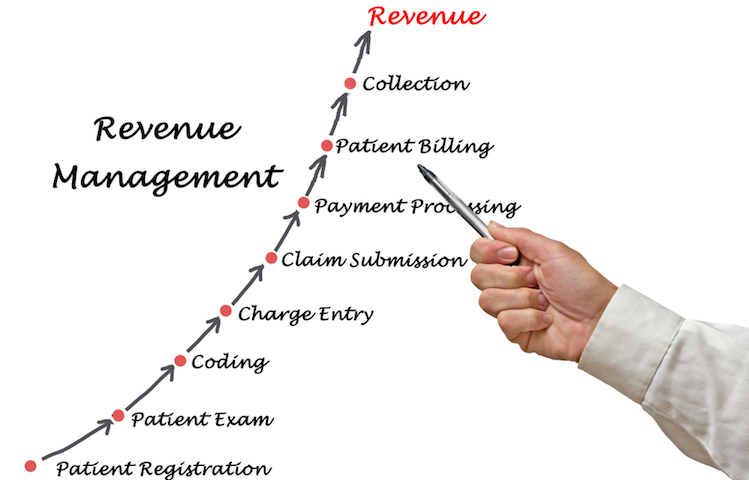

Blockchain platforms can also be built and implemented for faster processing of claims and managing revenue cycles.
It’s no wonder payers like St. Joseph Health are acquiring blockchain startups to help them do this faster, more securely, and more efficiently. The health insurance company recently purchased Lumedic, a Seattle-based developer of an advanced revenue cycle management platform sitting on top of blockchain technology.
The platforms bring together smart contracts, distributed ledger tech, and machine learning to help reduce inefficiencies in the healthcare revenue cycle, something that costs payers around $500 billion, according to McKinsey & Company estimates.


Medication adherence is not only crucial for patient safety, prevention of opioid overdose, and overall well-being, it can also present a huge cost savings potential for healthcare institutions and providers.
In fact, improved drug adherence can lead to cost savings of more than $290 billion in the US and £800 million in the UK, according to studies by New England Healthcare Institute and the School of Pharmacy at the University of London respectively.
Good thing, there are blockchain firms like Guardtime already using the secure and trustless technology to ensure medication adherence.
Guardtime, the UK based health tech firm, alongside its industry collaborators Healthcare Gateway and Access Medical, has launched MyPCR, the world’s first blockchain-powered Personal Care Record (PCR) platform.
MyPCR platform not only automates verification of medical adherence but also ensures patient data integrity and provenance, as well as efficient management of GDPR patient data rights (consent). It’s currently available to more than 30 million NHS patients in the United Kingdom.
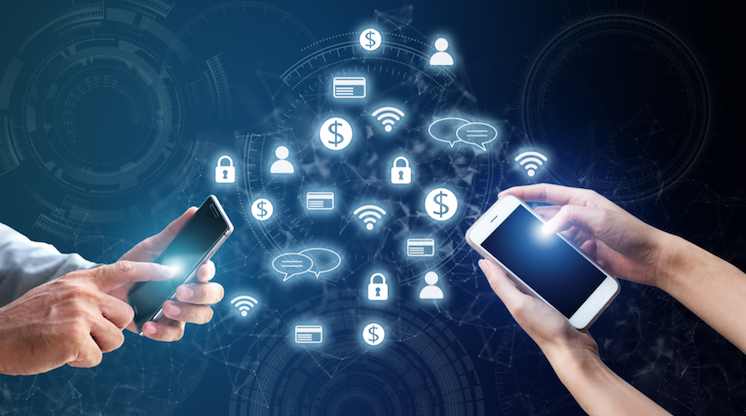

So far, we’ve talked about blockchain only in the context of what this revolutionary technology can do in the healthcare B2B context. But the reality is simple. There are tremendous opportunities for blockchain to actually completely redefine the relationship between consumers and the healthcare providers in the market. In this section, we look at how everyday consumers are seeing the benefits of blockchain adoption in the healthcare space.
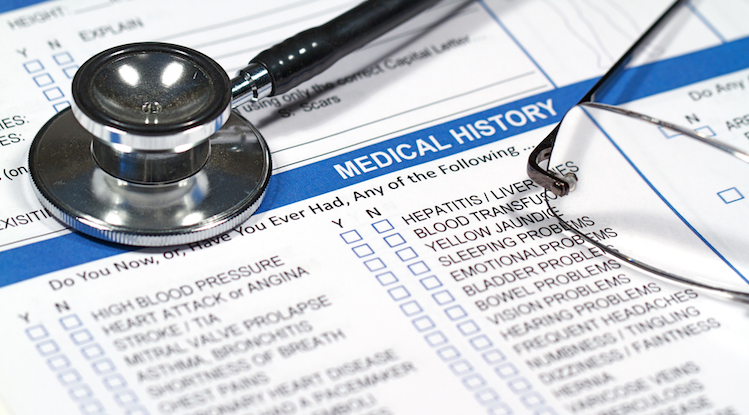

Let’s be honest: the current state of medical data systems is a mess.
For starters, patient medical data often reside in separate silos that make it an arduous task for those who need the data for patient diagnosis, treatment, and care.
For instance, if a doctor refers you to another specialist, currently, you as a patient have to physically carry around all your medical data (read: file) from one doctor to another. That’s a big no-no in the age of instant everything.
Yes, access to complete and accurate medical records across healthcare organizations ensures effective disease diagnosis and more efficient patient care.
With medical histories currently residing in centralized databases, blockchain can help make sure that patient data can be transferred from one health institution to another in an efficient, sure, accurate, and trustworthy manner.
This comes in the form of the decentralized medication management system (DMMS for short), a comprehensive platform that takes advantage of blockchain technology to manage access and sharing of patient medical histories.
According to Blockchain Healthcare Today, “DMMS is realized as a decentralized network under the hyperledger fabric framework. Based on the network, we designed an architecture, within which each prescriber can create prescriptions for each patient and perform queries about historical prescriptions accordingly.”
A classic example of a DMMS platform is Medicalchain, a blockchain-powered hyper ledger technology that allows patients to give access to their medical histories to specific healthcare providers. It then records how the healthcare professional interacts with patient data in an immutable, secure, and transparent manner.
In practice, Medicalchain does both electronic medical records sharing as well as allow users to sell their data to researchers.
Medical tourism is another area where DMMS can be quite useful. With millions of Americans going abroad (mostly India, Mexico) for medical tourism, there’s an increased need for a secure, efficient, and a distributed way for them to share their medical histories with foreign doctors. That’s a job for DMMS cloud-based systems.
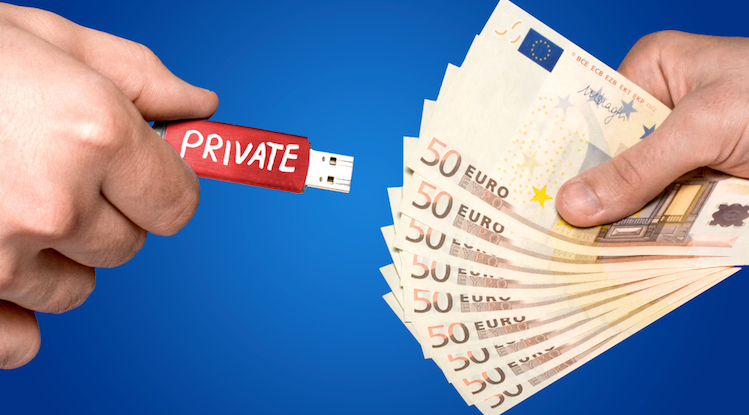

Researchers are always looking for the right medical data to either back their finds or inform their research activities.
To get access to the right patients, research companies usually go through intermediaries, typically healthcare marketing companies that find the right patients with the right health issues. That’s where blockchain firms like Embleema can come in handy.
What Embleema is doing is getting rid of the middlemen but also allowing patients to own their data and find someone who wants to buy it.
This helps both pharma and end-users who can now monetize their data. Despite HIPAA preventing health institutions and providers from sharing patient data, it always happens without the patient’s prior knowledge. In hospitals or drug trials, you just sign some papers and don’t pay attention to them.
In the UK, for instance, only one-third of patients understand how National Health Services (NHS) uses their data. Even worse, only 16 percent and 18 percent of them know how their medical data is used by commercial organizations and academic researchers respectively. This is something that Embleema’s PatientTruth looks to rectify.
But Embleema isn’t the only blockchain initiative geared towards decentralization and legal sale/monetization of patient data.
Hu-manity.co is another blockchain-based app that allows users to sell their medical data to researchers and big pharma directly by cutting the middleman. And this isn’t a shabby market. The patient data market is estimated to be worth between $150 billion and $200 billion. PatientSphere, on its end, uses a combo of AI and blockchain to consolidate and help users make revenue out of their patient data.
Recently, HU-manity.co also announced adopting IBM’s blockchain platform for its global consent ledger to manage personal data property rights.
As this article hopefully made clear, blockchain in healthcare is NOT a fairytale. It is a super promising technology which can help solve some of the most pressing problems the entire healthcare and pharma industries are facing on a daily basis.
Whereas we are sympathetic to some of the concerns various healthcare leaders have raised about the adoption of blockchain in healthcare, one thing is clear: the benefits outweigh the risks.
Furthermore, whereas blockchain in healthcare remains a foreign language that many executives are yet to master, in this article we’ve explored more than 20 companies that have created blockchain-based healthcare solutions which are simply remarkable and stunning and will one day become adopted at scale. And it’s also why we really consider Blockchain one of the top health technologies every healthcare executive should consider adopting in 2024.